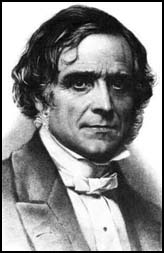Last updated on: December 23, 2014 at 6:05 pm
By
Fr. Dwight Longenecker
Something’s cooking in Rome.
An article in The Sunday Times suggests that Pope Benedict is drawing up plans to encourage Anglicans to come home to Rome.
In my post a few days ago I noted the Pastoral Provision’s snazzy new website, and rumblings from various quarters that Rome was trying to make it as easy as possible to help disenchanted Anglicans come into full communion.
As enthusiastic as all of us converts from Anglicanism may be, there are still some huge problems. Some of the problems are practical: when Anglicans come over there are significant numbers (clergy included) who have messy marital situations to sort out. Others have been church shopping so long that their spiritual trail is covered with all sorts of complications.
These things can be sorted out, and it is to Rome’s credit that she is willing to go through the hard work to get through the problems. The real difficulties, though, are not these practical ones.
For many Anglicans the problems are two fold. First is a long standing misapprehension about the Catholic Church. Many Anglicans–laity and clergy alike–really are amazingly ignorant about the modern Catholic Church. Even if they are attracted to Catholic styles of worship, they still think the actual Catholic church is the one of their childhood nightmares–all dark cavernous churches with Italian ladies wearing mantillas muttering rosaries in front of a bank of guttering candles before a gruesome crucifix or a lurid Queen of Heaven. They imagine hatchet faced nuns and red faced Irish drunks bellowing out imprecations to ‘Jesus Mary and Joseph’. Their Protestant upbringing has taught them to regard ‘Pope’ as meaning fat, corrupt medieval pontiff with ‘nephews’ and banquets selling indulgences to build a palace for himself. They know it is not like that now, but they can’t really shake these deeply rooted impressions.
Most Anglicans simply do not have an idea what the modern Catholic Church is like. They have not read the Catechism. They have not heard of the new ecclesial movements, they are unaware of all the positive things in the Catholic Church. Ironically, they also are unaware of our own problems. They know of the pedophile scandals of course, but they aren’t aware of the dismal state of our liturgy, our brutal modern buildings, the non existent musical tradition, the lousy preaching, the shallow social gospel and the weight of poor catechesis.Most importantly, many Anglicans (despite their despair over women bishops, gay bishops and terminal theological decay) still have not faced the authority question in the Church. They hate what has happened to the Anglican Church. They can’t think of anywhere else to go in the Protestant World, so they struggle along trying to do the Protestant thing–breaking into another schism, telling themselves that they and they alone have ‘preserved the true faith’ while all the others have apostosized in some way. Many simply have not faced squarely the reasons for Anglicanism’s present meltdown. They haven’t asked themselves the big questions about ‘who says so’?
We all want more converts, but I know from working with converts for ten years in England, that becoming a Catholic because you don’t like women priests, or homosexuality or happy clappy worship isn’t good enough. Converting only out of disenchantment with your own church is not sufficient. Anglicans need to confront the claims of the Bishop of Rome and ask the serious authority questions that are demanded. The book of conversion stories I have edited called Path to Rome considers all these things. Its worth a read!
In addition to this, it is time some of us Catholics who have converted from Anglicanism get back in touch with our Anglican friends and engage them in these very discussions. Real conversion needs work in the trenches–not just in the war rooms of the generals.
I wouldn’t be at all surprised that last week’s meeting about ‘dispensations for married clergy’ was really about how to process more married Anglican clergy applications. I think the affair with Abp. Milingo was somewhat of a smokescreen, and the real agenda was how to open wide the doors to more Anglicans worldwide.
Finally, I wouldn’t be at all surprised if the Pope, in his meeting with Williams, offers Williams a way out of his dilemna. The Vatican officials may suggest that the Anglicans actually work together with Rome to enable traditional Anglicans to come over. Wouldn’t that be the most effective thing? The Anglican authorities don’t want lots of schism. They want traditional Anglicans to find a home. Why shouldn’t they facilitate the process–even if that facilitation is done out of the public eye?
I know that when there were large numbers of converts in England ten years ago, when an Anglican priest went to see his bishop to register his intention of departing the Anglican bishop usually gave him the phone number of the Catholic bishop and wished him a fond farewell. Perhaps this informal arrangement could be regularized around the world to speed the process for all those of our separated brethren who really do belong at the high table of the wedding feast of the Lamb.












